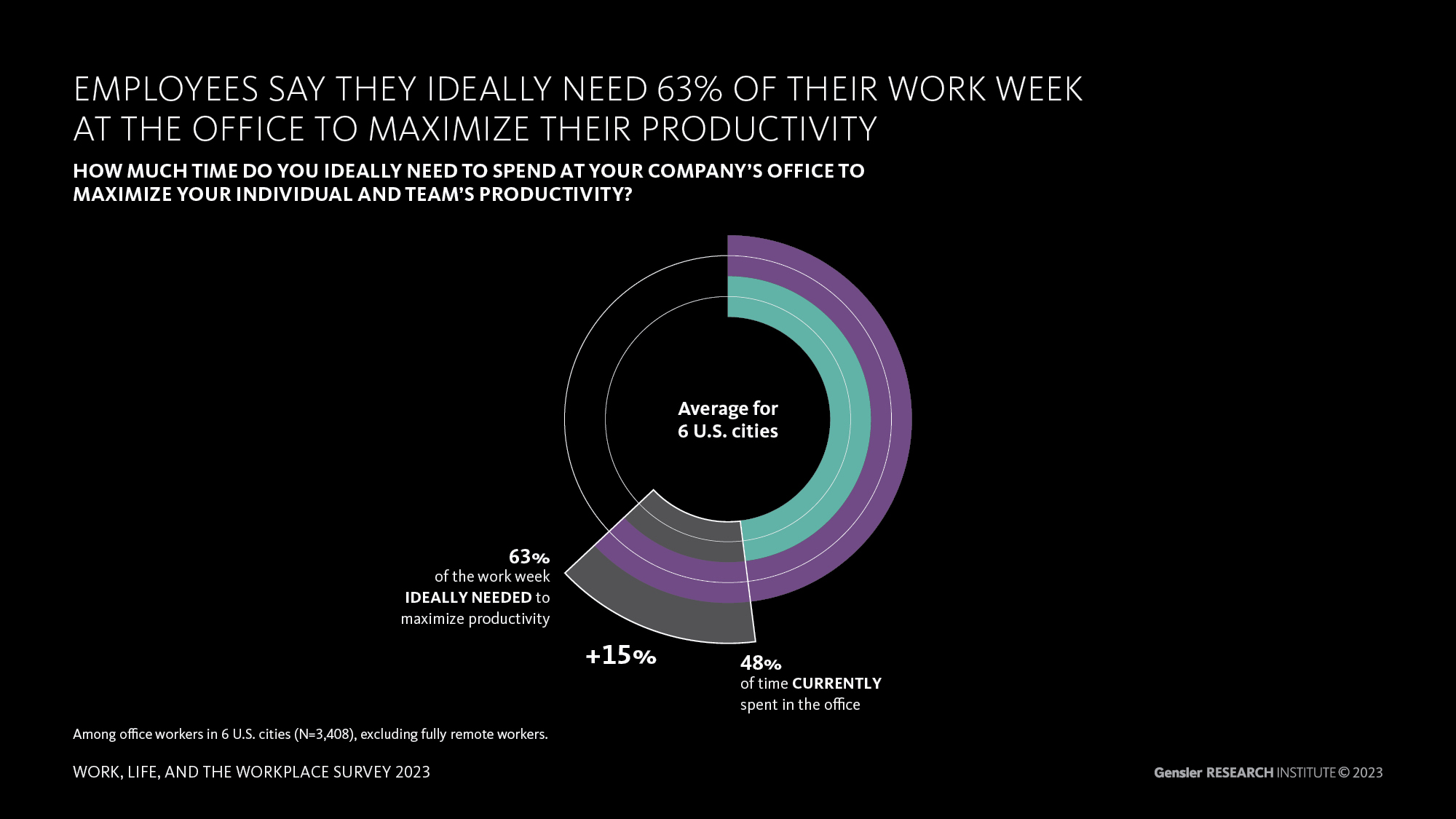Office workers in the U.S. are settling into a new rhythm of work and life following the pandemic. Gensler’s latest workplace survey of over 4,000 remote and office-based workers reveals that factors such as commute, generation, living situation, team type, and working across time zones influence decision making around how employees work, when they work, and why they value the office. This study highlights future implications for the workplace that respond to individual and teamwork patterns and space type requirements through a human-centric lens.
Many office workers are not working to their ideal.
The research revealed a gap between how often employees are currently in the office and how much they say they need to be in the office to be most productive. On average, office workers spend 48% of their typical workweek in the office, but they say to maximize their productivity they need to spend 63% of their week in the office. Gensler’s research report explores how different work, life, and workplace factors impact this gap, and highlights critical nuances in how different factors influence individual and team perceptions of the workplace.

Survey Methodology
The Gensler Research Institute conducted an anonymous, panel-based survey of 4,026 respondents across 6 U.S. metropolitan areas between May 17 and July 25, 2023. The survey was deployed using a third-party panel provider. At the time of data collection, all respondents were required to be full-time employed knowledge workers and to work for a company, organization, or firm of at least 100+ employees, within 10 designated industry segments. A substantial majority of workers surveyed were office workers who worked in an office environment at least some of the time (N=3,408). A subset of fully remote workers (N=618) workers was included as a comparison group. Respondents represented a broad cross-section of demographics, including job role, company size, age, commuting distances, living situation and geographical location across the U.S.
_1699037213.png)
Download the full report: “Work, Life, and the Workplace: A 2023 survey of office workers in six U.S. cities” to understand the different factors impacting employee decision-making around how and where they work. Our data provides key insights into how the workplace can respond to better accommodate the unique needs of individual office workers.